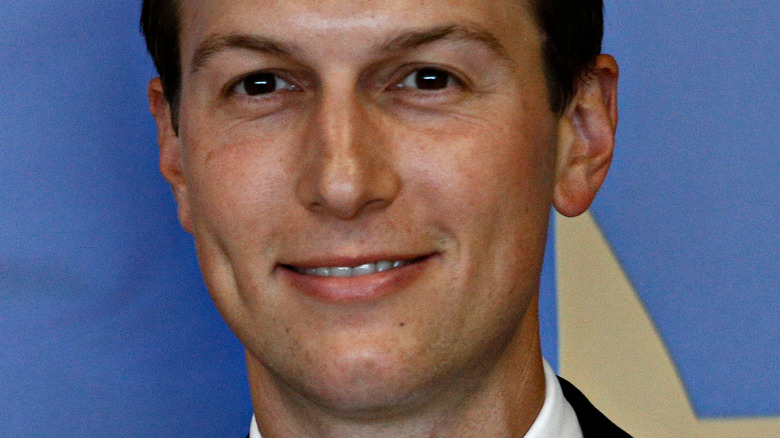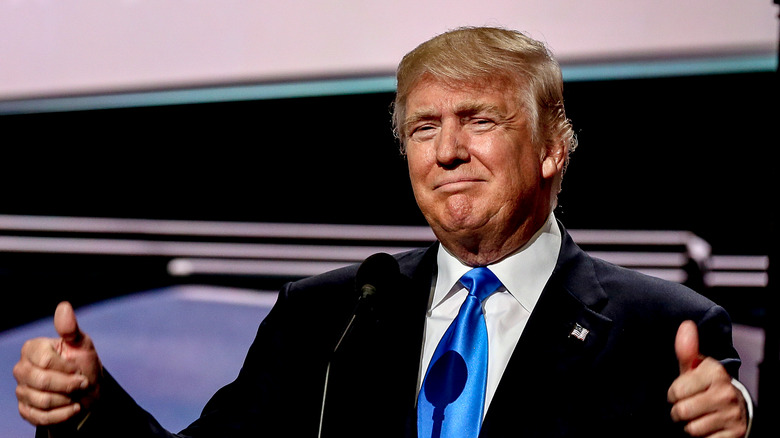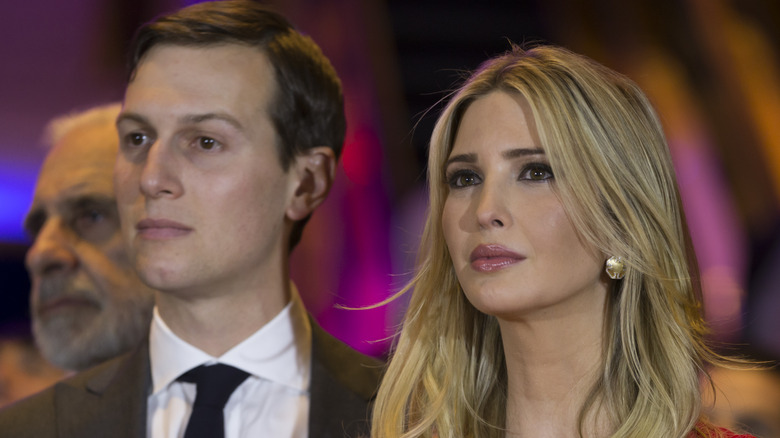Did Jared Kushner Break The Law Trying To Get Donald Trump A Second Term?
2020 was the year of firsts. It was the first time many of us saw the consequences of a virulent and out-of-control pandemic. We had never seen store shelves stripped of household essentials from cleaning supplies to meats thanks to a supply chain crisis. We'd never seen our streets as empty as they had become thanks to COVID-19-driven shelter-in-place orders. And thanks to the fact that none of us could get around, we saw crude oil and gasoline prices fall to levels a good number of us had never seen in our lifetimes.
And unless you're well-versed in political legislation, chances are, 2020 would have also been the first time many of us had really gotten to know what the Hatch Act was and what it was meant to do (via Council of Foreign Relations).
The Hatch Act is something a majority of us wouldn't be too familiar with. The law, which was passed in 1939, is meant to prevent officials from getting involved in political activities that might see them taking sides in a way that would affect the outcome of an election or from doing their duties in a partisan way. And while the Hatch Act is a law, violating it isn't a crime — in fact, CNN labels it a "workplace guideline." So its consequences can range from a reprimand to termination. Here's how Jared Kushner violated the Hatch Act during former President Donald Trump's time in office.
Hatch Act violations were regularly seen in the Trump administration
Throughout former President Donald Trump's campaign to win a second term, those of us who weren't burned out by the grueling election cycle witnessed numerous incidents that made us wonder why we'd never seen anything like that before. Like former Secretary of State Mike Pompeo appearing at the RNC in a pre-recorded interview during a visit to Jerusalem with an endorsement for Donald Trump. Or acting Homeland Security Secretary Chad Wolf undertaking a naturalization ceremony in a White House event that was also played during the RNC (via CNN).
The US Office of Special Counsel (OSC) now says that the two RNC-related events, as well as 18 other official media appearances, violated the Hatch Act. It also named the 13 senior Trump administration officials who took part in those appearances. The list includes former presidential son-in-law Jared Kushner, former senior adviser Kellyanne Conway, former White House chief of staff Mark Meadows, and former press secretary Kayleigh McEnany, who has been summoned to appear before the January 6 committee.
The OSC's findings, published November 9, say that "senior Trump administration officials chose to use their official authority not for the legitimate functions of the government but to promote the reelection of President Trump in violation of the law" (via USA Today). The office suggested that not only did those in the Trump White House display the ability to disregard the law, but in some cases, the former president encouraged that behavior.
Ivanka Trump may have violated the Hatch Act, too
While Jared Kushner was the only member of the Trump family who was named in the US Office of Special Counsel (OSC) report, one legal watchdog highlighted another member of the family as being a seasoned Hatch Act violator.
In 2020, the nonpartisan CREW noted that Ivanka Trump, whose former Twitter bio listed her as the "Adviser to POTUS on job creation + economic empowerment, workforce development & entrepreneurship," had used her Twitter account to campaign on behalf of her father no less than eight times over a 48-hour period. These include chronicling several campaign-related appearances across Arizona, Nevada, and Wisconsin.
CREW President Noah Bookbinder reacted to the OSC's November 9 report naming the 13 violators, saying in a statement (via the Los Angeles Times), "This report confirms that there was nothing less than a systematic co-opting of the powers of the federal government to keep Donald Trump in office. Senior Trump administration officials showed an open contempt for the law meant to protect the American people from the use of taxpayer resources and government power for partisan politics."


